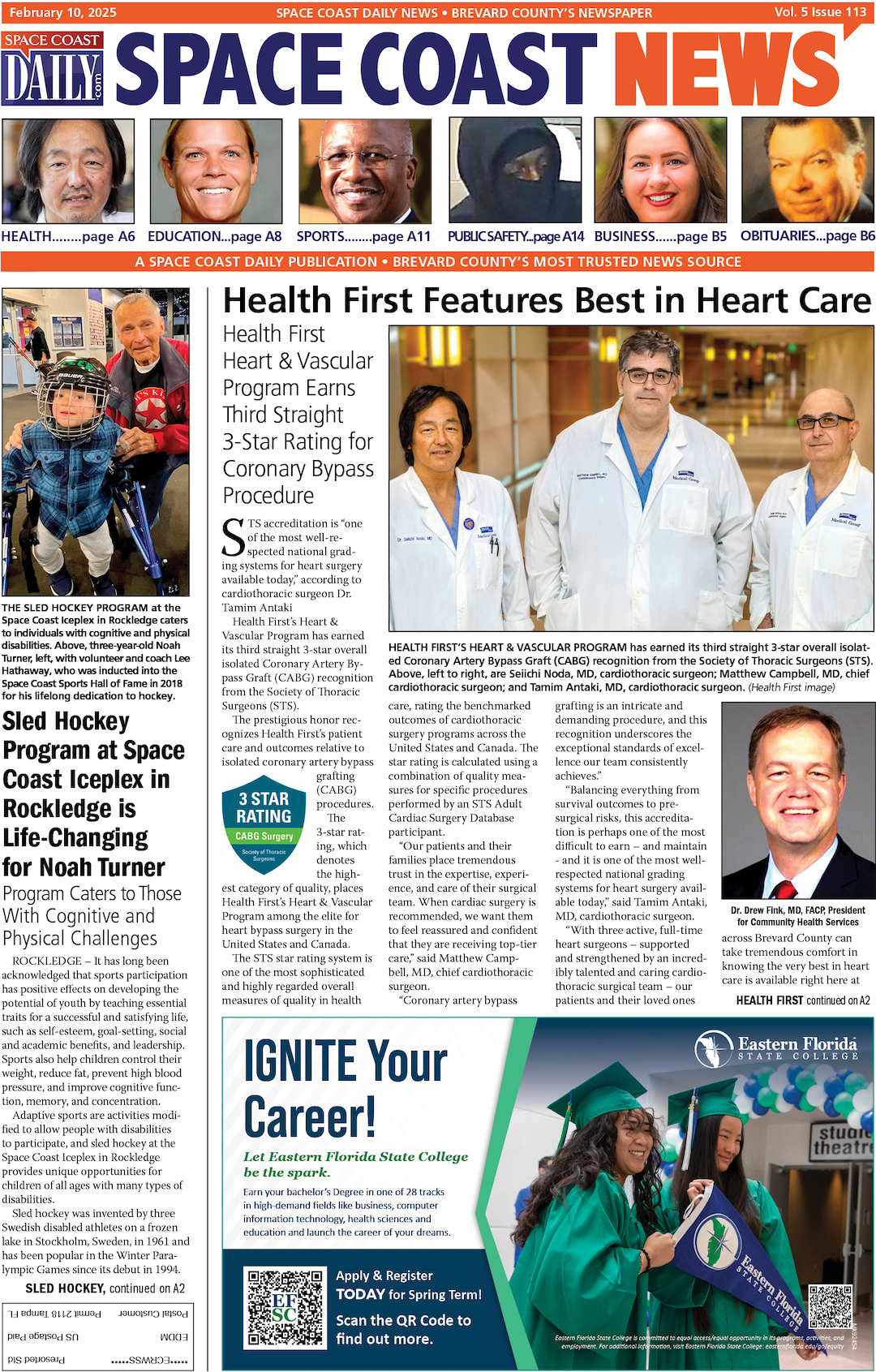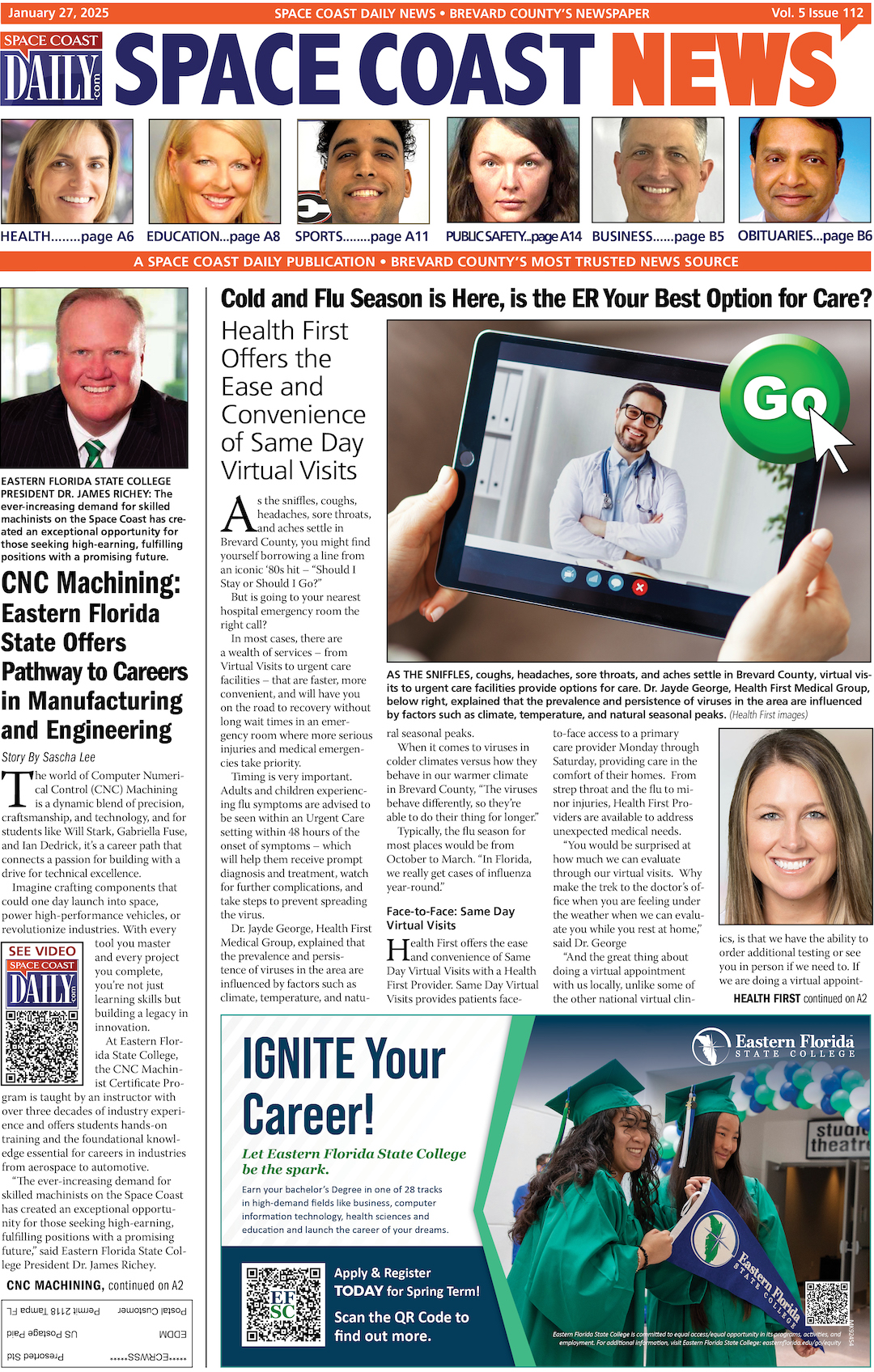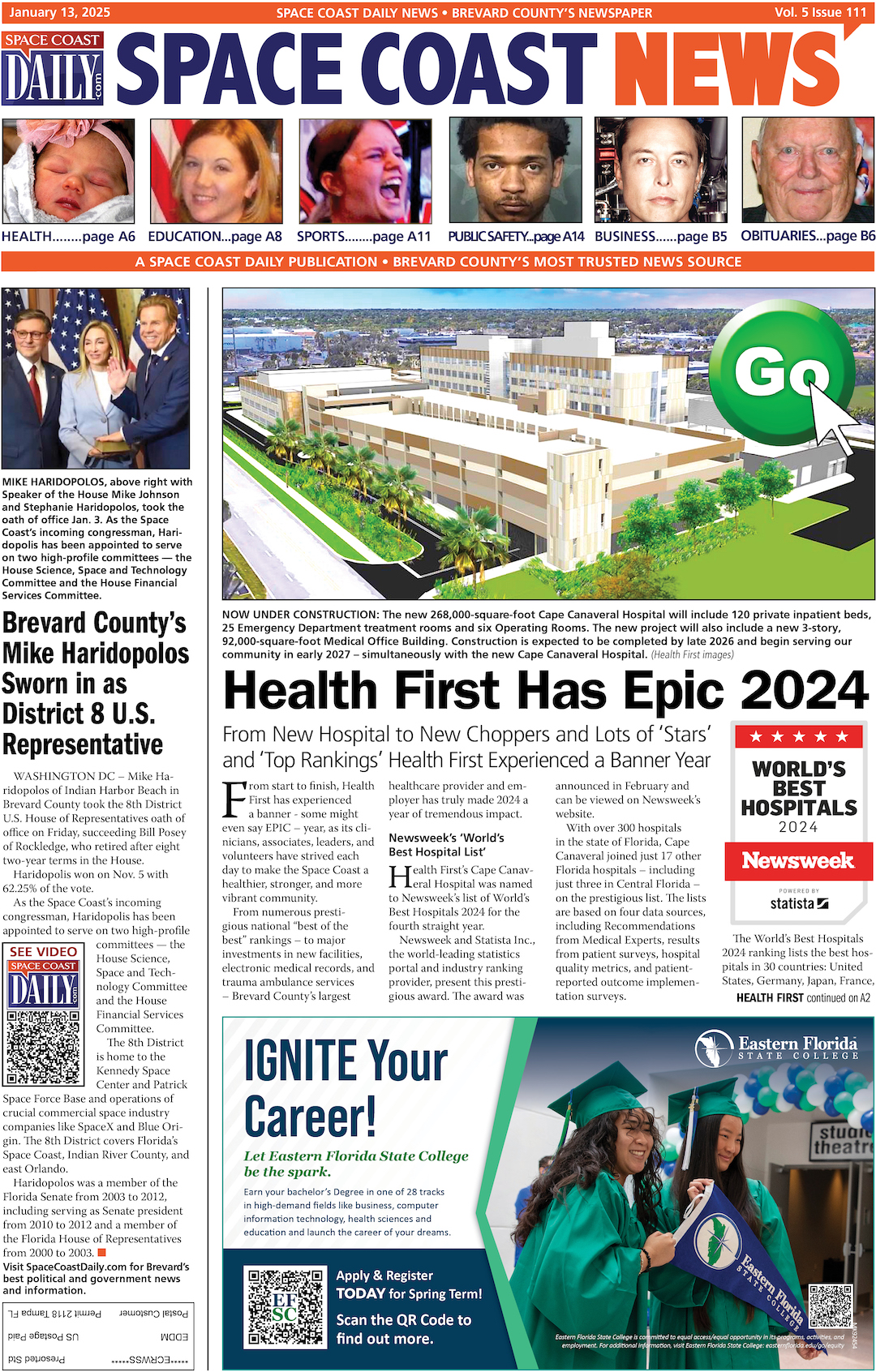From Education to Practice: How Online Learning Equips NPs for Better Patient Outcomes
By Space Coast Daily // February 12, 2025

The rise of digital learning has reshaped professional education across industries, and the healthcare sector is no exception.
For nurse practitioners (NPs), online learning has become an essential component of advanced training, offering flexibility and accessibility without compromising the quality of education. Unlike traditional in-person programs, online NP education allows professionals to balance their studies with clinical practice, an advantage that enhances learning retention and practical application.
As the demand for qualified NPs increases, particularly in chronic disease management, digital platforms have stepped in to bridge the educational gap. These programs integrate cutting-edge tools, including virtual simulations, case-based learning, and telehealth training, ensuring that NPs graduate with the necessary skills to manage complex patient cases. More importantly, they equip nurses with real-time decision-making capabilities that directly impact patient care and outcomes.
Online education is no longer a secondary option but a strategic solution to modern healthcare challenges. It eliminates geographical barriers, bringing high-quality education to underserved regions, which is crucial for addressing chronic disease prevalence in remote communities. By leveraging digital learning, NPs are better prepared to deliver comprehensive care where it is needed most, ensuring that education translates seamlessly into clinical expertise.
Bridging the Gap Between Education and Clinical Practice
One of the critical advantages of online NP programs is their ability to create a direct link between education and hands-on practice. These programs are meticulously designed to provide both theoretical knowledge and practical application, ensuring that graduates are not only well-versed in medical science but also proficient in executing treatment strategies. Interactive case studies, virtual patient assessments, and peer discussions foster a collaborative learning environment that mirrors real-world clinical settings.
For NPs specializing in chronic disease management, online education provides in-depth insights into managing long-term conditions such as diabetes, hypertension, and respiratory disorders. The integration of online learning tools allows students to simulate real patient interactions and treatment scenarios, preparing them for the complexities of disease progression and patient response. Digital education platforms emphasize evidence-based practice, ensuring that NPs apply the latest research findings in their daily responsibilities.
Moreover, the accessibility of online programs empowers nurses to pursue continuous professional development without disrupting their current roles. Many practicing NPs use online courses to stay updated on emerging treatments and healthcare trends, enhancing their ability to provide high-quality patient care. By combining flexibility with rigorous training, online learning ensures that NPs remain at the forefront of patient-centered care and clinical innovation.
Advancing Chronic Disease Management Through Online Learning
With the increasing burden of chronic diseases worldwide, healthcare professionals must be equipped with specialized knowledge and skills to manage complex conditions effectively. Online NP programs play a pivotal role in preparing nurses for this challenge, offering targeted coursework on chronic disease management, preventative care, and patient education. These programs are structured to address the nuanced needs of chronic care patients, emphasizing long-term treatment strategies and multidisciplinary collaboration.
An essential component of chronic disease management is patient engagement, which is heavily emphasized in online NP education. Through digital training, NPs learn how to implement patient-centered approaches, enhance communication skills, and foster adherence to treatment plans. Studies have shown that well-trained NPs can significantly improve patient outcomes by adopting proactive management techniques that prevent complications and hospital readmissions.
The integration of technology into NP training, along with the growth of online education in the digital age, has further enhanced the ability to manage chronic conditions efficiently. Digital tools such as telehealth consultations, remote monitoring, and AI-driven analytics are increasingly becoming part of standard NP training. These advancements ensure that NPs are well-equipped to implement modern treatment protocols and enhance patient care quality.
The Role of Virtual Simulations in Clinical Preparedness
Virtual simulations have become a cornerstone of online NP education, offering an immersive and interactive way to develop clinical competencies. These simulations replicate real-life patient scenarios, allowing students to practice assessment, diagnosis, and treatment planning in a controlled environment. By engaging in these simulated experiences, NPs refine their critical thinking skills and enhance their ability to handle high-pressure situations.
One of the most significant benefits of virtual simulations is the opportunity for repeated practice without the risk of patient harm. Unlike traditional clinical rotations, where exposure to specific conditions depends on real patient cases, virtual training ensures that students encounter a diverse range of medical situations. This exposure leads to improved clinical decision-making, greater confidence, and a smoother transition from education to practice.
Additionally, virtual learning fosters collaborative experiences by enabling NPs to engage with peers, instructors, and healthcare professionals through teleconferencing and online discussions. This teamwork approach simulates the interdisciplinary nature of healthcare, preparing NPs to work seamlessly with physicians, specialists, and allied health professionals in real clinical settings. By integrating technology into training, virtual simulations bridge the gap between theory and hands-on experience, ensuring that NPs enter the workforce with well-developed practical skills.
Continuous Learning and Professional Development
In a rapidly evolving healthcare landscape, lifelong learning is essential for NPs who aim to provide top-tier patient care. Online programs facilitate continuous professional development by offering access to up-to-date research, new treatment protocols, and emerging medical technologies. This ensures that NPs remain knowledgeable about advancements in healthcare and can integrate innovative practices into their patient management strategies.
One of the greatest advantages of digital learning is the ability to tailor educational experiences to individual career goals. NPs can choose specialized courses that align with their areas of interest, whether it be geriatric care, cardiovascular health, or mental health management. By curating their learning paths, they can acquire targeted expertise that enhances their ability to address specific patient populations and conditions.
Furthermore, the flexibility of online education enables NPs to earn additional certifications and advanced degrees while continuing to work in clinical settings. This seamless integration of education and practice ensures that knowledge is consistently reinforced and applied, leading to improved clinical outcomes. The ability to stay ahead of industry trends and best practices is a defining feature of highly effective NPs who leverage online learning for continuous professional excellence.
The Future of NP Education in a Digital Era
The future of NP education is undeniably digital, with technological innovations continuing to shape how nurses acquire and apply knowledge. Artificial intelligence, machine learning, and data analytics are expected to play an increasingly significant role in healthcare training, offering predictive insights and personalized learning experiences. These advancements will enhance the ability of NPs to diagnose, treat, and manage conditions with greater precision and efficiency.
Moreover, as the healthcare industry shifts towards more personalized medicine, NP programs are adapting by incorporating patient-specific training models. Online platforms are evolving to provide adaptive learning techniques that cater to different learning styles and clinical interests. This transformation ensures that future NPs are not only technically proficient but also well-equipped to deliver individualized patient care.
Ultimately, the growing reliance on online education in nursing underscores the critical role of technology in modern healthcare. By embracing digital learning, NPs can elevate their clinical skills, improve patient outcomes, and contribute to a more efficient and accessible healthcare system. As online programs continue to evolve, they will remain instrumental in shaping the next generation of nurse practitioners who are ready to meet the challenges of an ever-changing medical landscape.












